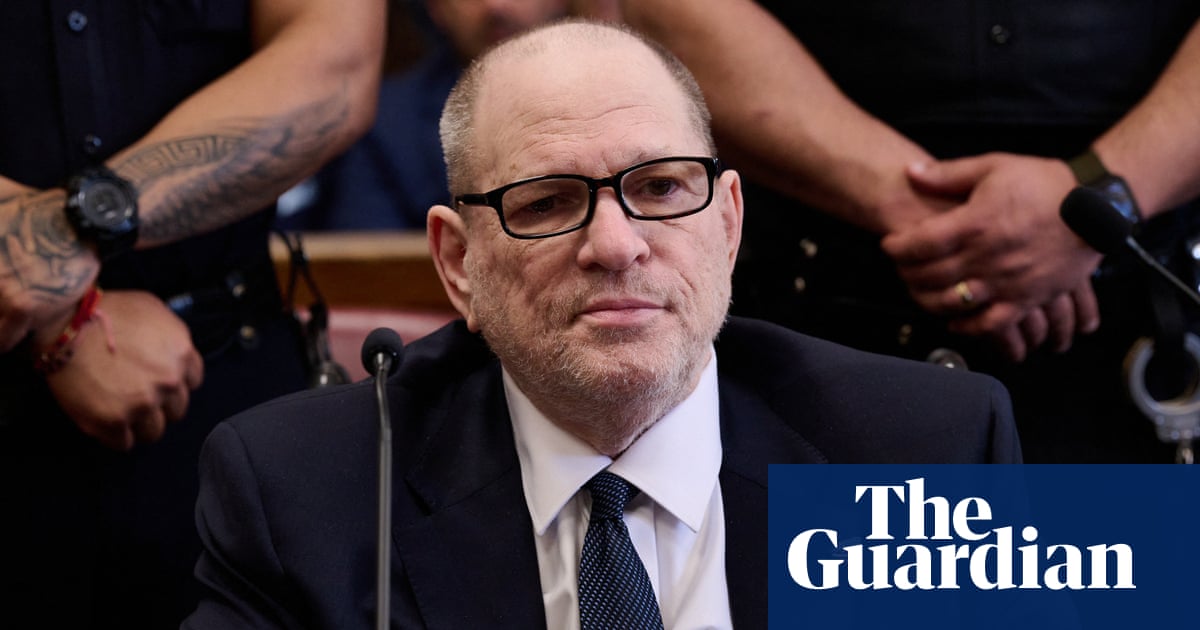Harvey Weinstein’s#MeTooretrial opened on Wednesday, giving a new jury a fresh look at familiar rape and sexual assault allegations – plus a newly added claim.
For the first time, prosecutors publicly identified Kaja Sokola, a former model, and detailed her account of what unfolded between her and the Oscar-winning movie producer in the early 2000s. He is criminally charged with forcing oral sex on her in 2006, but she also accused him in a civil lawsuit of groping her against her will four years earlier, when she was 16.
Like the two other accusers in the case, Sokola alleges a complex series of encounters and reactions – being sexually assaulted, yet staying in touch, wary of Weinstein but wanting to remain on good terms with a power broker who dangled the possibility of an acting career.
“Why did the defendant hold this level of power and control in the eyes of these three women? … It’s becauseHarvey Weinsteindefined the field,” prosecutor Shannon Lucey told jurors in an opening statement. “He knew how tempting promises of success were. He produced, he choreographed, he therefore directed their ultimate silence for years.”
Weinstein has pleaded not guilty, and defense lawyer Arthur Aidala countered by portraying the accusers as willing partners in a showbiz quid pro quo.
“The casting couch is not a crime scene,” Aidala told the majority-female jury. He compared prosecutors’ allegations to the preview of a movie that “falls flat on its face”.
The 73-year-old Weinstein, seated in the wheelchair he now uses because of health problems, did not look at Lucey or the jury during her presentation before the Manhattan district attorney, Alvin Bragg, and others in a packed courtroom audience. But Weinstein watched intently as Aidala outlined his defense.
The retrial is happening because New York’s top court last year threw out Weinstein’s conviction, which in 2020 was a watershed moment for the#MeToo movementagainst sexual misconduct. The high court found that the previous trial judge had allowed prejudicial testimony about allegations that were separate from the charges.
Weinstein’s retrial is playing out at a different cultural moment than the first. #MeToo, which exploded in 2017 with allegations against Weinstein, has evolved and ebbed.
At the start of Weinstein’s first trial, chants of “rapist” could be heard from protesters outside. This time, there was none of that.
Nevertheless, Sokola’s lawyer, Lindsay Goldbrum, has called Weinstein’s retrial a “signal to other survivors that the system is catching up – and that it’s worth speaking out even when the odds seem insurmountable”.
While this jury will not hear about the allegations that got the first conviction thrown out, the panel is expected to hear from Sokola. After the high court sent the case back for retrial, prosecutors added a criminal-sex-act charge based on her allegations.
The Polish-born Sokola met Weinstein in 2002 after traveling alone to New York for a modeling trip aged 16, according to prosecutors. She alleges he invited her to lunch to discuss potential acting jobs but detoured to his apartment and demanded she take off her shirt if she wanted to make it in the movie business. Then, Sokola alleges, Weinstein fondled her while making her touch his genitals.
Over the next few years, Sokola stayed in contact with Weinstein, even after telling him off for allegedly groping her in a car around 2004, Lucey told jurors. She said Weinstein arranged for Sokola to be an extra and talk to the stars of the 2007 romcom The Nanny Diaries, and she invited him to lunch with her visiting sister, hoping to impress the sibling.
After the lunch, he lured Sokola to his Manhattan hotel room by saying he had scripts for her to see, ordered her to undress, held her down on a bed and performed oral sex on her while she tearfully implored him not to do so, Lucey said.
Sign up toHeadlines US
Get the most important US headlines and highlights emailed direct to you every morning
after newsletter promotion
In the weeks after, Sokola was photographed with Weinstein and a third person at an event, and his company wrote her a recommendation letter for acting school, the prosecutor said. Lucey told jurors that power imbalances often “cause victims to behave in ways that laypersons possibly might not expect”.
After other allegations emerged against Weinstein in 2017, Sokola sued. Prosecutors said she received $3.5m in compensation.
Aidala said Sokola and the other accusers had been “trying to take advantage of Mr Weinstein when he was at the top”, then benefited from making allegations “when he was headed toward the bottom”.
Outside court, Sokola’s attorney decried Weinstein’s defense as full of “victim blaming” and “rape myths”.
In addition to the charge related to Sokola, Weinstein is being retried on a criminal-sex-act charge for allegedly forcibly performing oral sex on then production assistant Miriam Haley in 2006, and a third-degree rape charge for allegedly assaulting then aspiring actor Jessica Mann in 2013.
Weinstein’s 2020 acquittals on two other charges – predatory sexual assault and first-degree rape – still stand.
The Associated Press generally does not identify people alleging sexual assault unless they consent to be named, as Haley, Mann and Sokola have done.
